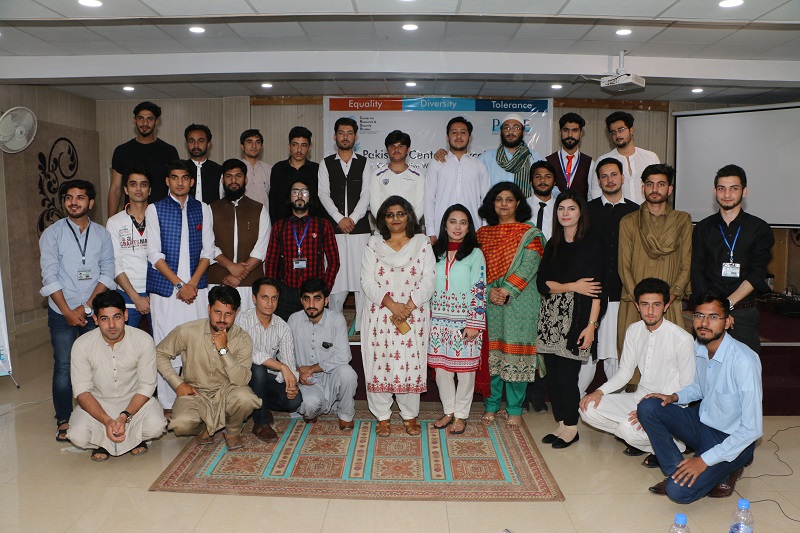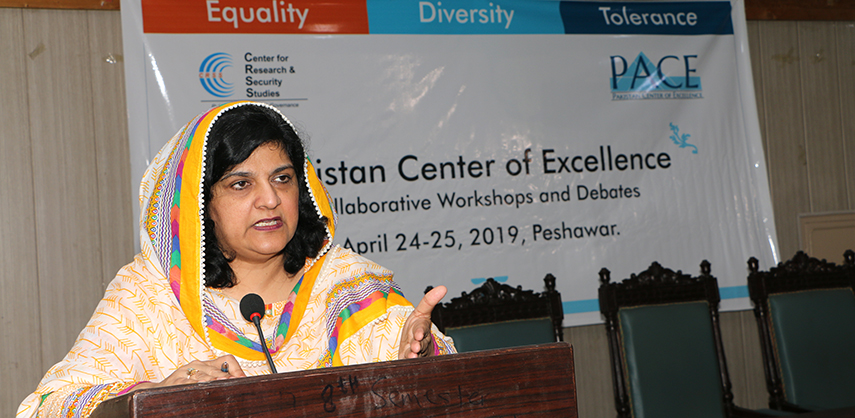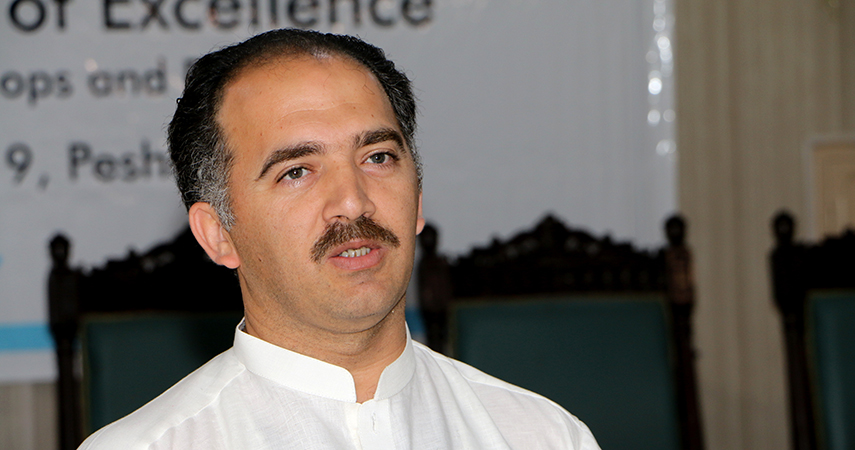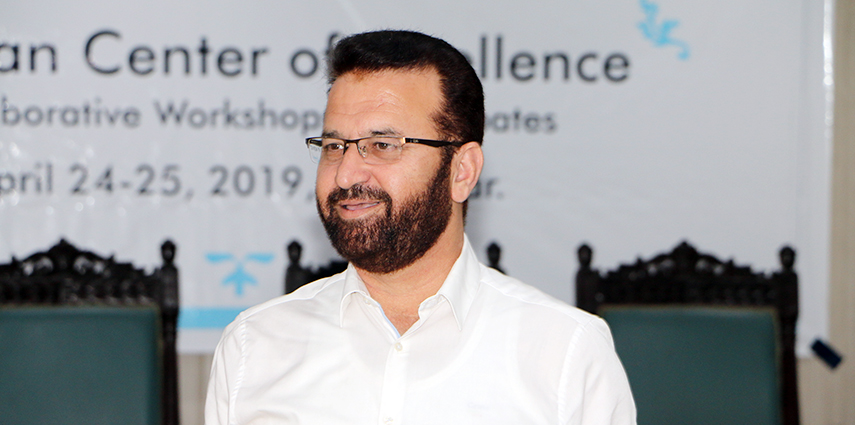The Center for Research and Security Studies (CRSS) conducted the third two-day PACE Collaborative workshops and debates for young university students, on April 24-25, 2019, in Peshawar. The workshop was held at Shaheed Benazir Bhutto Women University, Peshawar. The workshop was conducted under the umbrella of the Pakistan Center of Excellence (PACE), a counter-radicalization, pluralistic values focused project, in collaboration with the Dutch Government.
Participants included young students from Shaheed Benazir Bhutto Women University, CECOS University and Abasyn University, Peshawar. Project Manager, Ms. Farhana Kanwal started off the workshop with an introductory session and welcomed the participants to the workshop. Ms. Kanwal said that PACE is a counter radicalization initiative by CRSS which was in September 2015 and completed its first phase in September 2018. The core objective of PACE is to indoctrinate the habit of questioning and critical thinking among youth of Pakistan. PACE encourages to point at preconceived narratives and notions and embed the national discourse in constitutionalism and the rule of law. She further described that how important is the concept of equal citizenry and its implementation in today’s Pakistan. She stressed on adopting the framework of equal citizenry and that is the only way we can come up as a rational nation internationally. A state’s responsibility is to protect its citizens rather making the laws which create a segregation among them and this is where discrimination starts. A state is not supposed to view its citizens through the prism of religion as it leads to disparities among the people. Ms. Farhana elaborated on the success and achievements of PACE in its first phase and also the objectives of PACE Evolution.
Ms. Farhana further added that one of the core objectives of this workshop is to create a cadre of youth skilled with debate and critical thinking. In our society, we usually avoid questioning, PACE objectives are focused to stimulate critical thinking and it only starts with questioning.
The second session of the workshop conducted by Ms. Shagufta Khalique on ‘Equality, Diversity and Tolerance’. She started the session with a group activity to find out similarities and differences among themselves. The conclusion of the activity was that diversity is all about differences. It is all about being unique and different from the other and it is beautiful to be different. Each individual is different in many ways from the others and differences of personalities and ideas should be accepted and respected. We need to develop the habit of listening to others and understand their perspectives. Speaking of Pakistan, there is so much diversity is here in terms of religion, culture, language, gender and ethnicities. We have to understand that the society we are living in is diverse and it’s a permanent factor. There are certain stereotypes regarding various ethnicities or religions which need to be challenged and changed. No trait is a permanent part of any religion, culture or ethnicity, being different is natural.
The third session of the days was conducted by Dr. Jamil Ahmed who spoke on ‘Democracy and Good Governance’. He shared that we are living in a world that believes in democracy and accountability. We have to compete to get to a status or position in today’s world; it’s not inherent anymore. In true democracies, system is transparent and citizen engaged is encouraged and appreciated. He noted that for a true democratic system, all the institutions need to maintain their constitutional limits and separation of powers should be ensured by not interfering into one another’s domains. In this regard, the legislature, executive and judiciary should only commit to legislation, execution and adjudication respectively.
Responsible citizenship requires citizens to be aware of their rights and duties, as well as the role and responsibilities of public representatives. They should also cast their votes only for the accountable and transparent candidates with the potential to represent the public responsibly and address the issues that concern the public the most. The power of vote can best exercise the accountability. The voters are as much accountable as the representatives. Peace and stability requires strict compliance with and adherence to the core constitutional values and rule of law respectively.
The last session of the workshop was conducted by Mr. Safiullah Gul on media and ethics. He gave an insight on reporting and journalism and how crucial it is to report facts and the credibility of the information are the foundations of good journalism. He criticized immature journalism and how it spreads chaos rather than information. He explained how a story should be neutral explaining both sides. Sensationalism should be avoided and self-censorship should be considered. Biased and abusive attitude should not be accepted. He stressed on the importance of being neutral and presenting authentic news.
Ms. Farhana Kanwal closed the session with highlighting the importance of debates and critical thinking. She said that debate is a way of identifying and discussing the issues with logic and reason. She further said that an ideal society would always look beyond differences and there will be respect of rights and opinions for all with no discrimination.




